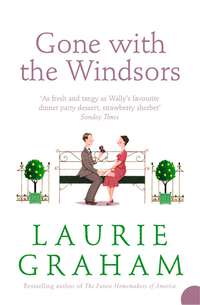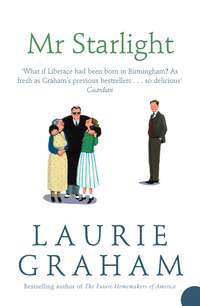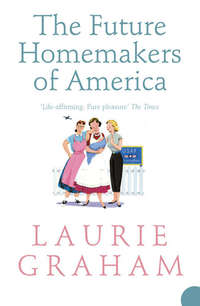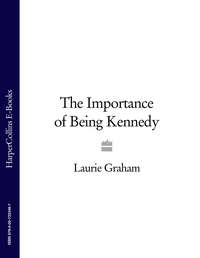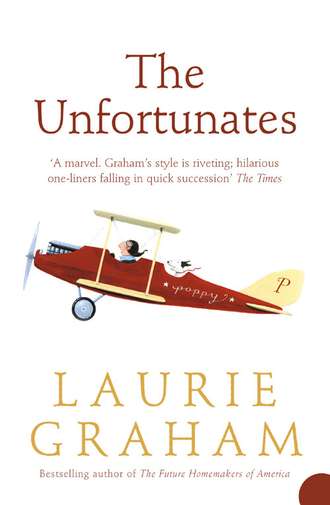
Полная версия
The Unfortunates
I hid for an hour inside Pa’s closet, comforted a little by its smells but anxious, too, that they might be fading. When I returned to my room, a small bottle had appeared on my night table. Pryce’s Soothing Extract of Hemp, recommended for cases of nervous excitement.
SIX
All through June and July our household was run by Aunt Fish, and then she stayed on through the worst of the August heatwave because we had an electric fan and she did not, and she feared she might expire without it. Uncle Israel struggled on without her, quite weary I suppose of having to dine out every night and drink champagne and play cards with other poor bachelors.
The days hung dead and hopeless. We visited no one, we had nothing to refresh our conversations, and every exchange was hobbled by unmentionable subjects. Water, travel, Europe, mustard, Iowa, money, joy, happiness, unhappiness; these were the main taboos. But to those I added my own secret list: Irish secretaries, gowns by Mr Worth, death by drowning and ghosts.
I was employed in a series of sewing assignments, trimming handkerchiefs with black ribbon, and turning slightly worn sheets sides to middle, a pointless exercise made all the more absurd by the fact that I had ten thumbs. In the privacy of my room, when I made clothes for my dolls and stitched them with my preferred left hand, I sewed very well indeed, but in the parlor, of course, only the use of the correct hand was permitted.
‘How awkward you look, Poppy,’ Ma said. ‘But you must persevere.’
While I stitched, Ma and Aunt Fish conversed. In the morning, dinner was discussed, and the social events none of us would be attending. Just once a week my aunt would tear herself away from us to attend the opera.
‘It gives me no pleasure, Dora,’ she always said, ‘but a box cannot go to waste.’
Otherwise the evenings were spent considering next day’s luncheon and reviewing our health, two not unconnected subjects.
‘An omelette is very binding,’ Aunt Fish would bid.
‘But celery is invigorating,’ Ma would counter-bid.
My only release from this was that once a week I was allowed to visit Honey. She and Harry had a red-brick on West 74th Street with a bay window high above the street that made it lighter and more cheerful than home. The serviceable, dark plum chintz had been picked out on Ma’s advice, and I now recognize, recalling the abundance of valances and frilled portières, other signs of her hand. If society abhorred a naked door frame, who was she to argue?
Still, I loved to visit there and play Chinese checkers and try on Honey’s new hats, and she enjoyed my being there. Sometimes, without Ma around, or Harry, she could be quite gay.
But in the fall of 1912 something changed. On my weekly visit there was no gaiety. All afternoon Honey just sat in her cushioned rocker and sucked peppermints. And the next week, and the next. It was December before I found out why. A baby was coming to live with Honey and Harry.
This news made me very happy. I had often wished to have a brother or a puppy and Honey’s baby seemed to promise a good alternative.
‘Where is it coming from?’ I asked, and Honey turned scarlet.
‘A little star fell from heaven,’ Ma said, ‘and has come to rest under her heart.’
I had noticed that the area beneath and around Honey’s heart had expanded recently, but I’d attributed this to the quantity of violet creams she ate.
‘And then what?’ I asked.
‘The stork will bring it from a special baby garden,’ Aunt Fish cut in.
‘Yes,’ said Ma, abandoning her story about the star, ‘and give it to the nurse and she’ll place it in the cradle.’
I was confused. So next time I was down in the kitchen, looking for company and cookies, I asked the Irish. We had a rosy-cheeked one at that time, quite pretty.
‘I wonder where Honey’s baby will come from?’ I said, drawing on the oilcloth with my wetted finger.
The Irish put down the silver cloth.
‘How old are you, Poppy?’ she asked.
I was just fifteen.
‘Well,’ she said, ‘you know you get your monthly health …?’
Reilly slammed down a tureen in front of her.
‘Wash out your mouth and get on with your work,’ she said.
The Irish grinned at me and polished on in silence until Reilly disappeared into the pantry. Then she leaned across the table.
‘’Tis very simple,’ she whispered. ‘Mr Harry had his way with her and put a bun in her oven and now she’ll blow up and up till her time comes and then she’ll be brought to bed of it and scream and scream and drop it like a sow-pig, and then there’ll be a grand pink little baby.’
I ran to my room and tried to compose myself before luncheon. I vowed, on my next visit to West 74th Street, to tell Honey what I’d learned. She seemed so calm, languid even, I couldn’t believe she understood what a terrible fate awaited her.
‘Harry will do it,’ Ma always said. ‘Leave it to Harry.’
Leave it to Harry indeed. I might have guessed he had something to do with it.
My sister was brought to bed of a baby boy on May 28, 1913. Three weeks before, she had taken up residence in her old room, so Ma and Aunt Fish could keep watch for the stork, so I supposed. In the event, things turned out much as the Irish had said they would, with Harry being sent away and Honey screaming, and a nurse arriving who drank quantities of tea, and finally a doctor in a top hat, with something in his bag that put a stop to all the yelling.
I was allowed to see my nephew when he was two hours old, and then it devolved to me to start breaking the news to Ma that he would not be named Abe, for his dear departed grandpa.
‘How well he suits “Sherman”,’ I said. Honey had suggested this as an opening.
‘Sherman?’ Ma said. ‘Sherman? As usual you are quite mistaken, Poppy. In this family we do not name our children after … hotels.’
‘Not after the hotel, Ma,’ Harry tittered, when he was finally admitted to see his wife and child. ‘Sherman, as in General William Tecumseh Sherman.’ And he attempted to sing ‘While We Were Marching Through Georgia’, as though that explained everything.
Ma was quiet for a while.
‘It seems to me,’ she said, returning to the battlefield, ‘that if you wish to name my grandson for a public figure, it should be for our new president. Abraham Woodrow Glaser sounds very well.’
‘’Fraid not, Ma,’ Harry said. ‘Can’t tar the boy with a Democrat brush. His name will be Sherman Ulysses, and that’s my final word on it.’
Ma’s knuckles whitened round her handkerchief.
‘Tell you what though,’ he said, backtracking a little at the prospect of tears. ‘Tell you what. If the next one’s a girl, we’ll name her Dora, for you.’
From what I had seen and heard that day, I doubted there would be a next one. I planned to consult the Irish again and see whether such things could be prevented.
Meanwhile ugly little Sherman Ulysses Glaser cried and slept and cried some more, and eventually I was allowed to cradle him.
‘I’m your maiden aunt Poppy,’ I told him, and he curled his little fingers around my thumb. Honey had three weeks lying-in before she took him home to West 74th Street, and Ma didn’t waste a moment of it.
‘Abraham,’ she kept whispering to him as he slept. ‘Grandma’s special little Abraham.’
Down in the kitchen I heard talk.
‘Is Mrs Honey’s baby to be cut?’ the Irish asked me.
‘Why?’ I asked, and she and Reilly exchanged annoying little smiles. I took the question straight to Ma, who was sitting with Aunt Fish and Honey and Harry’s mother, the senior Mrs Glaser.
‘Poppy!’ Ma said. ‘Not in the parlor!’
I had to wait until the company had left. Then I was taken to Ma’s bedroom to have it explained that some baby boys underwent a procedure, but the Minkels and the Glasers were unanimous in judging it quite unnecessary.
‘It’s just an old-fashioned racial thing,’ Honey said, ‘and we are civilized New Yorkers.’
I said, ‘I wish you could stay here, Honey. I’d help you with Sherman Ulysses and we could make dolls’ clothes and have fun.’
‘I’m a mother now, Pops,’ she said. ‘I don’t have time for fun.’
So the party was over. Honey took Sherman home, and time slowed down again, crawling past me while I read to Ma from Collier’s Weekly, and danced imaginary cotillions, but very quietly, so as not to tire her.
Mrs Schwab visited, and Mrs Lesser, and even the Misses Stone returned. They had forgiven me my hysterical outburst and after I turned sixteen they seemed more inclined to take me seriously. They knew better than to mention the distribution of second-hand clothes, but some of their projects, their work amongst ‘the element’, sounded adventurous and exciting. They raised money for the settlement houses where the Russian Hebrews could be washed and fed and trained out of their rude oriental ways. They arranged classes where the unfortunates could learn hygiene and gymnastics. They sent them to summer camp.
I said, ‘Gymnastics and summer camp! I’m sure I shouldn’t mind being an unfortunate.’
The Misses Stone laughed.
‘No, Poppy,’ one of them said, ‘you wouldn’t say so if you saw how people lived. Workers and donations are what we need. Perhaps some day, when you’re not so much needed at home?’
‘I hope,’ Ma sighed, ‘some day I may feel strong enough to spare Poppy for a few hours.’
Her true intention was that I should never set foot anywhere near such dangerous territory, but I wore away her resolve with the daily drip, drip, drip of my requests. It took many months. Then suddenly, one summer morning, she threw down her needlepoint and said, ‘I see you are determined to break my heart, Poppy, so go and be done with it.’
Two days later I was taken by trolley-car to the Bowery, and then, with a Miss Stone on either side of me for safety, I was swept into the tumult of Delancey Street, the very place where Pa had enjoyed his cherry blintzes.
I tried to tell the Misses Stone about this exciting coincidence, and they smiled, but I wasn’t at all sure they could even hear me. I had never in my life encountered so much noise or seen so many people. Then we turned onto Orchard Street and the buildings and the noise of the stinking, shouting unfortunates pressed in on me even closer.
There were dead ducks and chickens hanging from hooks, and women with dirty hands selling eggs from handcarts, and pickle barrels, and shop signs in foreign squiggles, and small boys carrying piles of unfinished garments higher than themselves, and ragged girls playing potsy on the sidewalk.
‘Why is everyone shouting?’ I shouted.
‘Because they’re happy to be here.’ That was the best explanation the Misses Stone could offer.
I said, ‘I’m sure abroad must be a very terrible place if Orchard Street makes them happy.’
We went to The Daughters of Jacob Center where the element could learn to dress like Americans and raise healthy children. And then to the Edgie Library where they could study our language.
‘You see, Poppy,’ they said, ‘how much needs doing?’
I said, ‘I don’t come into my money until I’m twenty-one and I don’t know how much there’ll be because Pa had complicated affairs.’
But the Misses Stone said it wasn’t only money they needed but helpers, and why didn’t I try sitting, just for five minutes, and helping someone with their English reading.
A small girl stood in front of me with a primer in her hands, trying to stare me down. I turned to tell the Stones I probably wouldn’t be very good at it, but they were hurrying away to inspect another class, and the staring girl was still waiting with her book.
I said, ‘The first thing you should learn is not to stare, especially not at your elders and betters.’
She was pale as wax, and skinny.
‘What’s your name?’ she said. She spoke perfect English.
I said, ‘And if you’re going to read to me you had better start immediately because I have to go home very soon.’
I sat on a stool and she stood beside me, a little too close for my liking, and read. She was pretty good.
I said, ‘You can read. You don’t need good works doing for you.’
She grinned.
I said, ‘Have you been to summer camp?’
She shook her head.
I said, ‘How about gymnastics?’
‘Yes,’ she said. ‘I did do that, but now I can’t be spared. I have to help make garters. We get one cent a piece. My name’s Malka but I like Lily better. What do you think?’
I didn’t really know what gymnastics were. As I had never been allowed them I surmised they were something desirable.
‘How old are you?’ she asked. She was one impertinent child.
‘And how were the gymnastics?’ I asked, feeling my way.
‘They were fun,’ she said. ‘Are you married? I like your coat. Want to see how I can turn a somersault?’ And she just flipped over, like a toy monkey. She went over so fast, I couldn’t see how she did it. This attracted the attention of the other little monkeys, who all left off their studying and gathered around me, fingering the fabric of my coat.
I looked around for someone to rescue me, but minutes passed before a Miss Stone appeared.
‘I knew it,’ she said. ‘You’ve made some friends already. They’re quite fascinated by you.’
I said, ‘I think I have to go home now. I think I’m needed there.’
‘But you’ve made such a hit,’ she said. ‘It’s because you’re a younger person, I expect. Do stay a little longer.’
I had to insist most firmly that I be home no later than four.
The girl called Malka shouted after me as we left the room.
‘Hey, Miss No Name,’ she called. ‘You have pretty hair.’
It was a measure of everyone else’s poor opinion of my looks that a compliment from an unwashed unfortunate went straight to my head.
‘That child reads well,’ I said. ‘How does she come to be here?’
‘The Lelchucks?’ she said. ‘They had to run from the Russians. Would you like to meet the rest of the family?’
I was torn. On the one hand I felt uneasily far from home. The loudness and smell of the place exceeded anything I could have imagined. But on the other hand I had a Miss Stone either side of me, greatly experienced in the ways of the ‘element’, and anyway, wasn’t I always longing to escape from the monotony of the parlor? I decided I would rather like to see where Malka Lelchuck lived.
We turned onto Stanton Street, where the buildings seemed still taller and darker, and every fire escape was cluttered with boxes and furniture. The entrance to Malka’s house was unlit and dirty, and as we climbed two flights of stairs people pushed past us.
I said, ‘These unfortunates seem to have a great many callers.’
The thinner Miss Stone laughed. ‘No, Poppy,’ she said, ‘these are their neighbors. The Lelchucks have only two rooms.’
Then I began to understand why they were called unfortunates. They had to share their buildings with strangers.
The door was open. The Misses Stone went in and beckoned me to follow, but I peered in from the threshold. Mrs Lelchuck kept her head bowed, too shy to speak, or perhaps too tired. She and four girls were busy around a table, finishing garters. There was a smell of frying, and vinegar, and other unknown things. My head swam.
There was something in the scene I recognized. Tedium, possibly. Finishing garters looked like very boring work. But there was something else I noticed, though I couldn’t name it. I think I now know it was the simple concord of a family working together. At any rate this, combined with the information that Malka Lelchuck had learned gymnastics, suggested to me that these so-called unfortunates were a good deal better off than I. Furthermore, I could not stop toying with the novelty of a compliment. Someone thought I had pretty hair. The unfortunates had looked at me with wonder and admiration. I passed the trolley ride home aflame with self-glory.
By dinner time the surprise of becoming an intrepid doer of good works and a beauty had so drained me I was unable to give an account of myself.
‘I feared as much,’ Ma said. ‘You have caught a disease and now we shall all pay for your recklessness.’
That night I dreamed of pickles that turned somersaults and ducks with no feathers and when I woke next morning I had a circle of itching red weals around each ankle. I had brought home with me from Stanton Street a deputation of fleas. Ma had the house dismantled. The floors were scrubbed with brown soap. Small dishes of camphor were burned in every room. And every surface was dabbed with kerosene until an inevitable encounter between a naked flame and kerosene fumes deprived Reilly of her eyebrows, and consequently us of our cook.
As the Irish had been dismissed just days before for ferrying quantities of canned goods out of our pantry and home to her mother, carrying them away under her skirts, the final reckoning was that we were reduced to one housemaid, one parlor maid and a person who came in weekly to do mending and alterations. We faced social ruin and starvation, and all because of my headstrong expedition down amongst ‘the element’.
‘I hope,’ Ma said, ‘you are quite satisfied.’
But I wasn’t. On reflection, from the safe haven of West 76th Street, I decided I wanted more expeditions. I wanted to ride on trolley-cars, and maybe even on the elevated railway. I wanted to do good works amongst grateful people who admired my hair. I wanted to taste a cherry blintz.
But further visits to Delancey Street were unthinkable for a while. I was in trouble, and my disgrace was intensified by our having to dine every night with Aunt Fish and Uncle Israel until the first in a series of unsatisfactory replacements for Reilly began her duties. Even then it was many weeks before I sensed any let-up in my aunt’s watchful disapproval. In fact it wasn’t until November and the occasion of my seventeenth birthday that I felt I had finally been forgiven.
‘Getting to be quite the young lady, Pops,’ said Uncle Israel.
He and Aunt Fish gave me a sketch book and a metal box with little blocks of paint.
‘Watercolors. An elegant and suitable occupation for you, Poppy,’ explained Aunt Fish.
‘How kind,’ said Ma, ‘and how timely, now that you will be settling down to your duties at home.’
I heard a door slam shut on my career as a brave and beautiful benefactress.
From Ma I received a new writing case, and from Baby Sherman Ulysses a framed photograph. My best gifts though were from Honey who, in addition to a dreary manicure set, brought me a bag of scraps from her dressmaker, a bag with pieces of pale green crêpe de Chine and red taffeta and blue satin.
I hugged her.
‘Well,’ she said, ‘you are old enough now to stop chewing your nails, so I thought I’d encourage you. It’s time you took more care in your toilette.’
I said, ‘Why? We’re not looking for a husband anymore.’
Honey said that neat nails were an asset to anyone and Ma and Aunt Fish couldn’t have agreed with her more.
In a roundabout way I even received a gift from Reilly, who returned, on November fourteenth, and offered to give us just one more chance, thereby saving me from further nightly inspections at Aunt Fish’s dinner table.
I used my birthday scraps to make dolls’ clothes, as Honey had intended, and when the scraps were all gone, I used my paints to plan what I should like to make next. Shiny, slippery dresses, and pantaloons with beads and tassels, and big, bright coats that trailed behind like folded butterfly wings and flashed a lining of shot orange silk.
Ma said, ‘Wasting paint again, Poppy? How I should love you to make me a painting of trees and clouds. Just a small one. I’m sure there is no necessity to splash the paint about so.’
I was allowed to resume my weekly visits to Honey’s house, too, once we could be certain fleas were the only bad thing I’d brought home from Stanton Street. I’d go for a whole afternoon, and look through Honey’s closets and try on her hats and shawls and bang about until I woke Sherman Ulysses. He always seemed very pleased to see me, and he was quite advanced, for a Glaser.
‘Honey,’ I said one time, ‘you know how I have to stay with Ma now and be her help and comfort? Well, what will I do when Ma is dead?’
‘Gracious, Pops,’ she said, ‘that won’t be for years. Thirty years maybe.’
‘No, but still,’ I said, ‘what will I do then?’
‘You’ll live with me and Harry,’ she said.
That was the day I decided to write to Cousin Addie in Duluth.
‘Dear Cousin Addie,’ I wrote.
I am your Uncle Abe Minkel’s girl. We have never met, but I am an old maid like you. I hope we can be correspondents. What are your dolls’ names? I make very good dolls’ clothes which I could send you some time. I would certainly be willing to visit Duluth some day.
I never mailed it. Before I could work out a secret way to discover her address and to receive her replies without interference from Ma, I was distracted by new thrills and skirmishes. A war had begun in Europe.
SEVEN
President Wilson told us that the United States of America must be seen to be impartial in thought, word and deed, but the Prussians cared nothing for that, so we were preparing for invasion. Quantities of canned goods were brought in and a lock, to which only Ma held a key, was fitted to the pantry door. This reawakened Reilly’s dormant desire to flounce out and leave us in the lurch again, and threats were exchanged. Only the news, flashed to us from Harry’s office, that a German submarine had been sighted in Long Island Sound, pulled Reilly back into line.
‘Well?’ Ma said, with the confidence of a player who is holding a royal flush. ‘The Hun is at the door. Are you staying or leaving?’
Reilly returned below stairs, but as long as Ma kept up the locked pantry regime, Reilly exacted her own small satisfactions.
‘Asparagus tips, if it’s not too much trouble.’ Her voice would erupt from the speaking tube, like an Upper Bay foghorn, and quite destroy the gentility of Ma’s parlor.
It turned out there had been no submarine. But something else was menacing us, as I should have guessed from conversations between Ma and Honey which always ended abruptly as I came into the room. Then a meeting was convened, for Sunday afternoon. Honey and Harry were to attend and the Aunt and Uncle Israel Fishes, and tea and seed cake would be served.
I said, ‘I’ll take Sherman Ulysses for a walk in his bassinet.’
Seed cake was my least favorite.
‘No, Poppy,’ Ma said. ‘This concerns even you.’
We were assembled to discuss the question of German connections.
Harry said, ‘Weiner, Ittelman, Schwab, they’ve all stopped speaking German, even behind closed doors.’
Ma said, ‘I’m sure I wouldn’t know German if I heard it. Abe never used it. Nor his father.’
I said, ‘Are we Germans, then?’
‘Of course not, you foolish girl,’ Ma and Aunt Fish chorused.
‘It’s a question of appearances,’ Harry went on. He stood up and stroked his moustaches and rocked on his heels as he spoke. I suppose this helped him to feel less of a nonentity.
‘We all know we’re not Germans,’ he said. ‘We certainly don’t behave like Germans. But we have to face facts. Every name tells a story and as patriotic Americans we’d be fools not to free ourselves of any taint. A change of name. That’s all it takes. We’re changing to Grace. A good old American name.’
‘Don’t see the need,’ Uncle Israel said. ‘I recall when your father changed from Glassman to Glaser. Seems to me that was change enough.’
‘You’re wrong, Israel,’ Harry said. ‘You’d be surprised what little things folk pick up on. I have to do this, for my boy’s sake.’
Aunt Fish agreed with Harry and had quite set her heart on becoming a Fairbanks, but Uncle Israel would have none of it.


